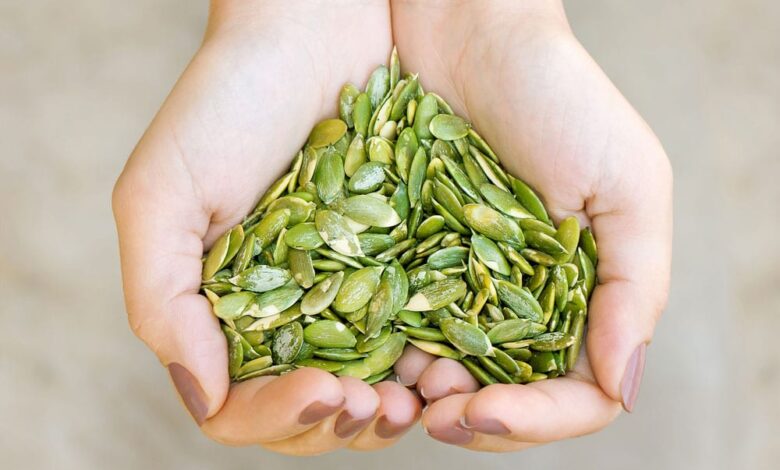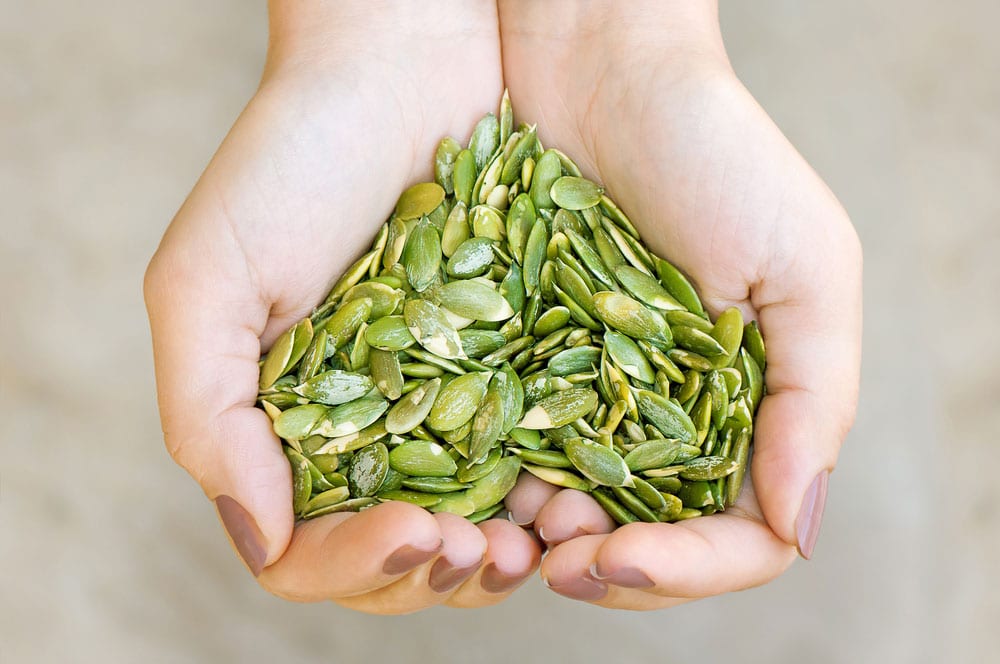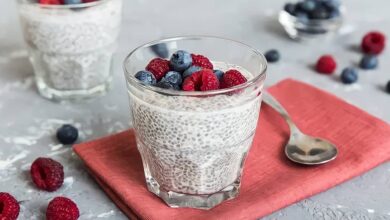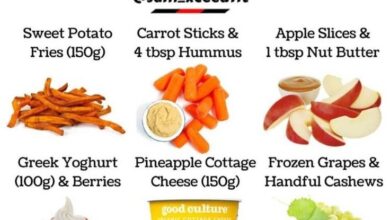
7 Nutrient Packed Seeds You Should Be Eating
7 Nutrient Packed Seeds You Should Be Eating: Tired of the same old snacks? Want to boost your health with a simple change? Look no further than seeds! These tiny powerhouses are packed with nutrients, fiber, and antioxidants that can benefit your heart, digestion, and overall well-being.
Let’s dive into 7 amazing seeds you should be incorporating into your diet.
From the humble chia seed to the mighty sunflower seed, each offers a unique nutritional profile and a range of health benefits. We’ll explore their individual strengths, how to incorporate them into your daily meals, and why they deserve a prominent place on your plate.
Tiny Powerhouses: 7 Nutrient-Packed Seeds You Should Be Eating: 7 Nutrient Packed Seeds You Should Be Eating
Seeds are often overlooked as a nutritional powerhouse, but these tiny wonders are packed with essential vitamins, minerals, and healthy fats that can significantly benefit your health. They offer a wide range of benefits, from boosting energy levels to supporting heart health and promoting gut health.
This article highlights seven specific seeds that deserve a prominent place in your diet. These seeds are not only incredibly nutritious but also versatile and easy to incorporate into your daily meals.
The Nutritional Value of Seeds
Seeds are a nutritional powerhouse, packed with essential nutrients that can benefit your overall health. They are rich in:
- Fiber:Seeds are an excellent source of dietary fiber, which aids in digestion, promotes regularity, and helps you feel full.
- Protein:Seeds provide a good source of plant-based protein, essential for building and repairing tissues.
- Healthy Fats:Seeds are rich in monounsaturated and polyunsaturated fats, which are beneficial for heart health.
- Vitamins and Minerals:Seeds are packed with various vitamins and minerals, including magnesium, zinc, iron, and vitamin E.
- Antioxidants:Seeds contain antioxidants that protect your cells from damage caused by free radicals.
Chia Seeds
Chia seeds, derived from the Salvia hispanica plant, are tiny powerhouses of nutrition. These seeds, often referred to as “superfoods,” are packed with essential nutrients and offer a wide range of health benefits.
Nutritional Profile of Chia Seeds
Chia seeds boast an impressive nutritional profile, making them a valuable addition to a healthy diet. They are an excellent source of fiber, protein, and omega-3 fatty acids, along with essential minerals like calcium, phosphorus, and magnesium.
- Fiber:Chia seeds are rich in both soluble and insoluble fiber, which is crucial for digestive health. Soluble fiber helps regulate blood sugar levels, while insoluble fiber promotes regularity.
- Protein:Chia seeds contain a significant amount of protein, making them a good source of this essential nutrient. Protein is vital for building and repairing tissues, maintaining muscle mass, and supporting overall health.
- Omega-3 Fatty Acids:Chia seeds are a rich source of alpha-linolenic acid (ALA), an omega-3 fatty acid that plays a crucial role in heart health, brain function, and reducing inflammation.
- Minerals:Chia seeds are an excellent source of several essential minerals, including calcium, phosphorus, magnesium, and manganese. These minerals contribute to bone health, energy production, and various bodily functions.
Health Benefits of Chia Seeds
The impressive nutritional profile of chia seeds translates into numerous health benefits.
From chia to pumpkin, there are so many amazing seeds packed with nutrients that can boost your health. And when it comes to maximizing the flavor and freshness of spring produce, a few pantry staples can really make a difference.
Check out this article on 5 pantry staples maximize spring produce for some inspiration. Once you’ve got your pantry stocked, add some of those nutrient-packed seeds to your salads, smoothies, or even baked goods for an extra boost of goodness!
Heart Health
Chia seeds are heart-healthy due to their high fiber content, omega-3 fatty acids, and antioxidants. The fiber helps lower cholesterol levels, while omega-3 fatty acids reduce inflammation and improve blood vessel function.
Digestive Health
The high fiber content in chia seeds promotes digestive health by adding bulk to stools, preventing constipation, and supporting regular bowel movements.
Blood Sugar Regulation
Chia seeds help regulate blood sugar levels due to their high fiber content. The fiber slows down the absorption of sugar into the bloodstream, preventing spikes and crashes in blood sugar levels.
Incorporating Chia Seeds into Your Diet
Chia seeds are incredibly versatile and can be easily incorporated into various meals and snacks.
- Add to Smoothies:Chia seeds blend seamlessly into smoothies, adding a boost of nutrients and a slightly nutty flavor.
- Sprinkle on Yogurt or Oatmeal:Chia seeds can be sprinkled on top of yogurt or oatmeal for a crunchy texture and extra nutrition.
- Make Chia Seed Pudding:Chia seed pudding is a simple and delicious snack or breakfast option. Simply mix chia seeds with milk or yogurt and let it sit in the refrigerator for a few hours or overnight.
- Bake with Chia Seeds:Chia seeds can be used as an egg replacer in baking, adding moisture and binding the ingredients together.
Flax Seeds
Flax seeds, often referred to as “linseeds,” are tiny nutritional powerhouses packed with essential nutrients. These seeds have a unique nutritional composition, particularly their high content of omega-3 fatty acids, which are beneficial for overall health.
Nutritional Profile of Flax Seeds
Flax seeds are a rich source of essential nutrients, including fiber, protein, and various vitamins and minerals. They are particularly known for their high content of omega-3 fatty acids, specifically alpha-linolenic acid (ALA). ALA is an essential fatty acid that our bodies cannot produce, making it crucial to obtain it through diet.
Benefits of Flax Seeds for Health
Flax seeds offer numerous health benefits, including:
Promoting Hormone Balance
Flax seeds contain lignans, which are plant compounds with estrogen-like properties. Lignans may help regulate hormone levels in the body, potentially benefiting women experiencing hormonal imbalances, such as during menopause.
Reducing Inflammation
The omega-3 fatty acids in flax seeds have anti-inflammatory properties. Inflammation is a natural process that helps the body heal, but chronic inflammation can contribute to various health problems. By reducing inflammation, flax seeds may help protect against conditions like heart disease and arthritis.
Promoting Skin Health
Flax seeds are rich in antioxidants, which help protect the skin from damage caused by free radicals. The omega-3 fatty acids in flax seeds may also help improve skin hydration and reduce inflammation, contributing to a healthy and youthful complexion.
Creative Ways to Consume Flax Seeds
Flax seeds can be incorporated into various dishes and beverages. Here are some creative ways to enjoy their nutritional benefits:
Grinding Flax Seeds into Flour
Grinding flax seeds into flour is a convenient way to add them to recipes. Flaxseed flour can be used as a substitute for wheat flour in baking, adding a nutty flavor and boosting the nutritional content of your baked goods.
Adding Flax Seeds to Smoothies
Flax seeds blend seamlessly into smoothies, adding a subtle texture and a boost of nutrients. They can be added to any smoothie recipe, making it a simple way to increase your intake of omega-3 fatty acids and fiber.
Sprinkling Flax Seeds on Salads and Cereals
Sprinkling flax seeds on salads, yogurt, or cereal is a quick and easy way to add a nutritional punch to your meals. They provide a pleasant crunch and add a boost of fiber and omega-3 fatty acids.
Hemp Seeds
Hemp seeds, also known as hemp hearts, are the seeds of theCannabis sativa* plant. However, they are not the same as marijuana, which is derived from the flowers and leaves of the same plant. Hemp seeds are a nutritional powerhouse, packed with protein, healthy fats, and various vitamins and minerals.
Hemp Seeds vs. Marijuana
Hemp seeds and marijuana come from the same plant species,Cannabis sativa*. However, they are distinct in their chemical composition and effects. Hemp seeds are derived from varieties of the plant that have been bred for their fiber and seed production, containing negligible levels of the psychoactive compound tetrahydrocannabinol (THC).
Marijuana, on the other hand, is derived from varieties of the plant that have been bred for their high THC content, leading to psychoactive effects.
Nutritional Value of Hemp Seeds, 7 nutrient packed seeds you should be eating
Hemp seeds are a complete protein source, containing all nine essential amino acids. They are also rich in healthy fats, particularly omega-3 and omega-6 fatty acids, which are essential for heart health, brain function, and overall well-being.
- Protein: Hemp seeds are a complete protein source, providing approximately 9 grams of protein per 3 tablespoons.
- Essential Fatty Acids: Hemp seeds are a good source of omega-3 and omega-6 fatty acids, with a favorable ratio for optimal health.
- Fiber: Hemp seeds are a good source of dietary fiber, which aids in digestion and promotes gut health.
- Vitamins and Minerals: Hemp seeds are rich in various vitamins and minerals, including magnesium, iron, zinc, and vitamin E.
Incorporating Hemp Seeds into Your Diet
Hemp seeds are incredibly versatile and can be easily incorporated into various dishes. Here are a few recipe ideas:
- Salads: Sprinkle hemp seeds on top of your favorite salads for a boost of protein, healthy fats, and a nutty flavor.
- Smoothies: Add a tablespoon or two of hemp seeds to your smoothies for extra protein and nutrients.
- Granola: Incorporate hemp seeds into your homemade granola recipe for a crunchy texture and added nutritional value.
- Baked Goods: Use hemp seeds in your baking recipes, such as muffins, bread, and cookies, for a nutty flavor and added protein.
- Yogurt or Oatmeal: Sprinkle hemp seeds on top of your yogurt or oatmeal for a nutritious and flavorful topping.
Pumpkin Seeds
Pumpkin seeds are a tiny powerhouse of nutrients, offering a surprising array of health benefits. These little seeds are packed with essential vitamins, minerals, and antioxidants, making them a valuable addition to your diet.
Nutritional Profile of Pumpkin Seeds
Pumpkin seeds are particularly rich in zinc and magnesium, two minerals crucial for various bodily functions. Zinc plays a vital role in immune function, wound healing, and cell growth, while magnesium is essential for muscle and nerve function, blood sugar control, and blood pressure regulation.
| Nutrient | Pumpkin Seeds (1 oz) | Almonds (1 oz) | Walnuts (1 oz) | Sunflower Seeds (1 oz) |
|---|---|---|---|---|
| Calories | 150 | 163 | 185 | 164 |
| Protein (g) | 5 | 6 | 4 | 5 |
| Fat (g) | 13 | 14 | 18 | 14 |
| Carbohydrates (g) | 5 | 6 | 4 | 6 |
| Fiber (g) | 2 | 3 | 2 | 2 |
| Zinc (mg) | 4 | 1 | 1 | 1 |
| Magnesium (mg) | 150 | 80 | 60 | 100 |
Potential Health Benefits of Pumpkin Seeds
Pumpkin seeds are often associated with prostate health. The high zinc content in pumpkin seeds may contribute to prostate health and potentially reduce the risk of prostate problems.Pumpkin seeds are also known for their potential to improve sleep quality. They contain tryptophan, an amino acid that the body converts into serotonin and melatonin, hormones that regulate sleep.
Furthermore, pumpkin seeds are rich in mood-boosting nutrients, including magnesium, zinc, and tryptophan. These nutrients may play a role in regulating mood and reducing stress levels.
Sunflower Seeds
Sunflower seeds are a popular snack and a nutritional powerhouse, offering a wide array of health benefits. They are a good source of protein, fiber, and healthy fats, along with essential vitamins and minerals.
From chia seeds bursting with omega-3s to pumpkin seeds brimming with zinc, incorporating these nutrient-packed seeds into your diet is a delicious way to boost your health. And if you’re looking for a flavorful way to enjoy them, consider adding them to a sustainable seafood sushi bowl.
The nutty crunch of seeds complements the fresh flavors of the bowl, and the added protein and fiber will keep you feeling satisfied. So go ahead, sprinkle some seeds on your next meal and enjoy the benefits!
Nutritional Value
Sunflower seeds are particularly rich in vitamin E, a potent antioxidant that protects cells from damage caused by free radicals. A single ounce of sunflower seeds provides about 37% of the daily recommended intake of vitamin E. They are also a good source of selenium, another important antioxidant that plays a vital role in immune function and thyroid hormone production.
Benefits of Sunflower Seeds
Heart Health
Sunflower seeds are a good source of monounsaturated and polyunsaturated fats, which are beneficial for heart health. They contain a significant amount of oleic acid, a heart-healthy monounsaturated fat that can help lower bad cholesterol (LDL) and increase good cholesterol (HDL).
You know how they say breakfast is the most important meal of the day? Well, imagine starting your day with a power-packed breakfast that includes nutrient-rich seeds like chia, flax, and sunflower. These little powerhouses are packed with fiber, protein, and healthy fats.
And while you’re at it, you can also add some protein to your breakfast with a delicious bacon ham egg wrap. The combination of these seeds and a protein-rich breakfast can help you feel energized and focused throughout the morning.
Immune Function
Sunflower seeds are rich in vitamin E and selenium, both of which are essential for a robust immune system. Vitamin E helps protect cells from damage caused by free radicals, while selenium plays a vital role in the production of white blood cells, which are crucial for fighting infections.
Reducing Oxidative Stress
Sunflower seeds are rich in antioxidants, which help protect the body from damage caused by free radicals. Oxidative stress is a major contributor to aging and chronic diseases, including heart disease, cancer, and Alzheimer’s disease.
Ways to Enjoy Sunflower Seeds
Sunflower seeds can be enjoyed in a variety of ways. Here are some ideas:
- Snack on them raw or roasted.
- Add them to salads for a crunchy texture and added nutrients.
- Use them as a topping for yogurt or oatmeal.
- Incorporate them into trail mixes or granola bars.
- Grind them into a flour and use it in baking.
Sesame Seeds

Tiny, nutty, and packed with nutrients, sesame seeds are a powerhouse of flavor and health benefits. Often used in Asian and Middle Eastern cuisine, these seeds are a valuable addition to any diet, offering a rich source of calcium, iron, and other essential vitamins and minerals.
Nutritional Profile
Sesame seeds are a treasure trove of nutrients, offering a wide range of vitamins, minerals, and antioxidants. Notably, they are an excellent source of calcium, providing more calcium per serving than milk. They also contain a significant amount of iron, making them beneficial for individuals with iron deficiency.
- Calcium: Sesame seeds are a great source of calcium, a vital mineral for bone health and overall well-being. A single tablespoon of sesame seeds provides about 10% of your daily calcium needs.
- Iron: Sesame seeds are also rich in iron, an essential mineral for red blood cell production and oxygen transport throughout the body.
- Other Nutrients: Sesame seeds are a good source of other essential nutrients like magnesium, phosphorus, zinc, and vitamin E, all of which play crucial roles in maintaining overall health.
Benefits of Sesame Seeds
Sesame seeds offer a range of potential health benefits, including promoting bone health, regulating blood sugar levels, and reducing inflammation.
Bone Health
The high calcium content in sesame seeds makes them a valuable addition to a diet aimed at maintaining strong bones. Calcium is a vital mineral for bone growth and density, helping to prevent osteoporosis, a condition characterized by weak and brittle bones.
Blood Sugar Control
Sesame seeds contain lignans, a type of plant compound that has been shown to help regulate blood sugar levels. Lignans may improve insulin sensitivity, allowing the body to use glucose more effectively, which can be beneficial for individuals with diabetes or those at risk of developing the condition.
Reducing Inflammation
Sesame seeds contain anti-inflammatory compounds, including sesamin and sesamolin. These compounds may help reduce inflammation throughout the body, potentially lowering the risk of chronic diseases associated with inflammation, such as heart disease, cancer, and arthritis.
Sesame Seeds in Cooking
Sesame seeds can be enjoyed in various ways, adding flavor and nutritional value to your meals.
- Tahini: This creamy paste made from ground sesame seeds is a staple in Middle Eastern cuisine. It can be used as a dip, spread, or ingredient in sauces and dressings.
- Sesame Oil: Extracted from sesame seeds, this oil has a nutty flavor and high smoke point, making it suitable for both cooking and salad dressings.
- Garnish: Sesame seeds can be sprinkled on top of salads, soups, stir-fries, and baked goods to add a nutty crunch and visual appeal.
- Sesame Paste: This thick paste is made from roasted sesame seeds and is commonly used in Asian cuisine as a flavoring agent in sauces and marinades.
- Sesame Noodles: A popular dish in Chinese cuisine, sesame noodles are typically made with thin wheat noodles tossed in a sesame sauce.
Ultimate Conclusion
Incorporating these 7 nutrient-packed seeds into your diet can significantly enhance your health and well-being. Whether you sprinkle them on salads, blend them into smoothies, or enjoy them as a tasty snack, these tiny powerhouses can make a big difference.
Remember, small changes can lead to big results, and these seeds are a delicious and easy way to fuel your body with the nutrients it needs to thrive. So, embrace the power of seeds and start reaping the rewards today!






